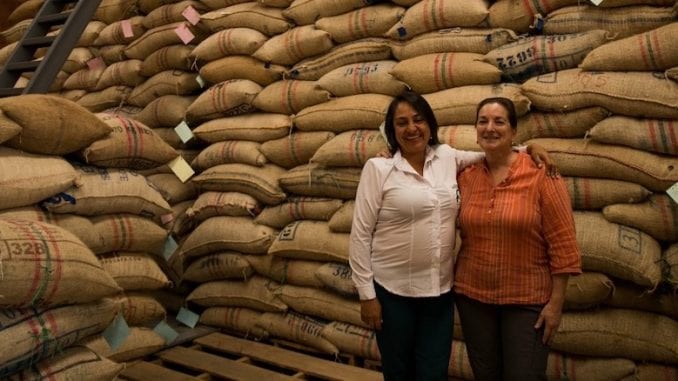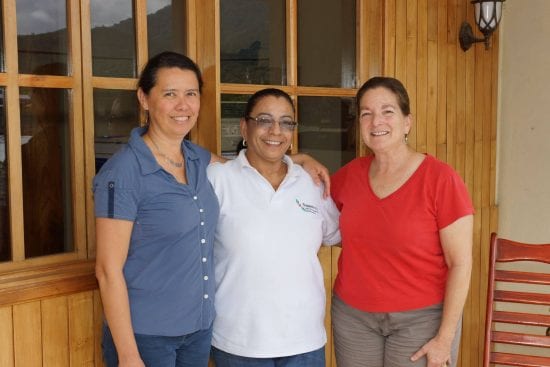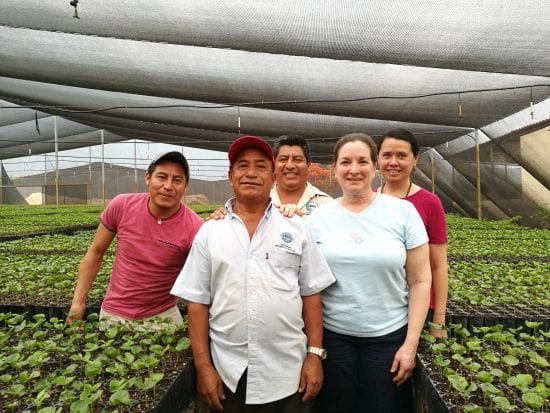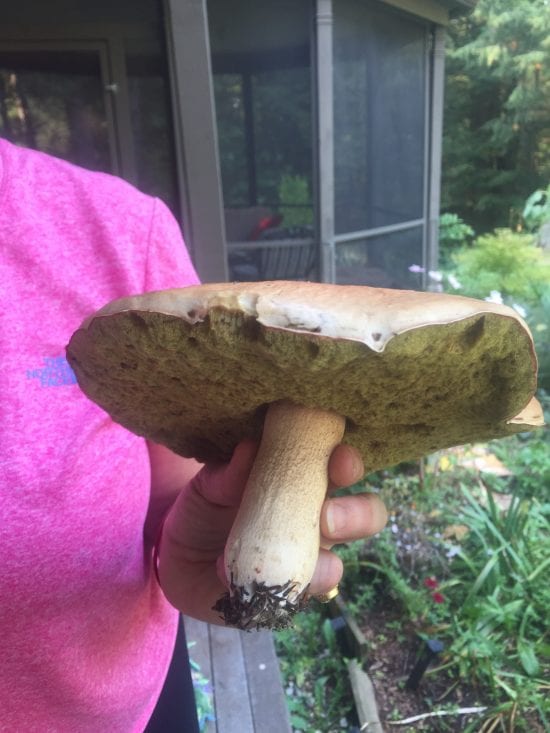
We continue our interview with the co-director of Food 4 Farmers, a nonprofit battling food insecurity in coffee-producing areas.
BY CHRIS RYAN
BARISTA MAGAZINE ONLINE
Photos courtesy of Janice Nadworny
In the first part of our interview with Food 4 Farmers co-director Janice Nadworny, we learned about her journey through the world of Wall Street before entering the nonprofit world. In today’s second and final part of the interview, we talk to Janice about Food 4 Farmers’ growth over the past decade, what they’ve learned from operating the nonprofit, and much more. For additional reading on Food 4 Farmers, check out the June + July 2020 issue of Barista Magazine, which features an interview with Marcela Pino, Janice’s fellow co-director at Food 4 Farmers.

Chris Ryan: Once you entered the coffee world, what was your path to co-founding Food 4 Farmers?
Janice Nadworny: I joined Grounds for Health in 2008, just before the financial meltdown, and witnessed the staying power of coffee. The coffee industry was so resilient compared to others because people need their caffeine, no matter what. I had no clue how big this universe was, but it was at that intersection of social and economic justice, and financial markets. I saw a tremendous potential for coffee to affect significant, positive change for some of the world’s poorest economies, where millions of farming families had been left out of decades of global wealth accumulation.
What if those 100 million coffee producers could earn a bit more, and thrive along with coffee companies? I saw coffee as an industry with the potential to change the world.
Though Grounds for Health was a good place to learn, I’m a consultant at heart—I’ve never liked the hierarchical structure at most organizations. I like big, messy problems to solve. So, I left in 2010, and was approached by Rick Peyser and Marcela, who offered the messiest proposition ever—to create a new NGO from scratch, with no deep pockets or angel investors, to work on food security in coffee-growing communities—in a way that reflected what farmers wanted.
Can you give a bit of a snapshot of the last 10 years with Food 4 Farmers, and the philosophies the organization has developed and followed?
We began our work in 2011, right as the short film After the Harvest was shown at SCAA Expo. It was funded by Green Mountain Coffee Roasters and explored the prevalence of food scarcity among coffee-farming families. Ultimately, it left a lot of people feeling overwhelmed and helpless.
Here was specialty coffee, thinking that coffee could solve the problem. What’s more, believing that investing in coffee would fetch farmers a higher price, and deliver a decent livelihood. All those assumptions went out the window. If coffee can’t be the only answer to the problem of poverty, what else could the industry do?
Because the people who grow it don’t own enough land to make it work economically, our organization came in with another way: intentional, strategic, long-term farm diversification to supplement coffee. We felt that this would give farming families enough food and income to stay together, on their farms, growing coffee. It’s counterintuitive to think that farmers don’t have enough food—they’re the ones who can grow it. But if they’re growing coffee instead, they can’t make farming work.
We looked at previous work done by other organizations. Most plug in a solution, train the community—either families or organizations—then exit, declaring victory. After they leave, much of the progress is lost. We talked with cooperatives about this, and heard back that expertise is often embedded in the NGO rather than the community, and the focus is often on implementation, rather than developing local expertise to manage sustain, and grow the work independently. We decided to focus on this gap.
We developed a community diagnostic to determine the root causes of inadequate livelihoods and identify assets or resources already in the community that could be formalized and scaled to address specific challenges. Co-ops and families would lead the work, [and] we would co-develop tools, curricula, and business planning resources.
At the heart of our work is adult education. Once a farming community chooses its strategies—gardens, beekeeping, cacao, basic grain production—we find skilled local training organizations to plug in the technical knowledge they need. Our roles are facilitators, guides, and auditors. I like to refer to us as underpaid consultants. We work FOR the co-ops.

Where does Food 4 Farmers work, and how have those organizations been impacted?
Our first partners were two organizations we knew from our previous work: SOPPEXCCA in Nicaragua and Cesmach in Mexico. Then, Root Capital hired us in 2014 to work with Maya Ixil in Guatemala, and we got a grant from Progreso Foundation in 2015 to add Nuevo Futuro in Colombia and continue with Cesmach on a beekeeping venture.
With each partner, we analyzed the community-context to see what pieces were universal across programs, and which ones were unique. SOPPEXCCA and Nuevo Futuro wanted to add school gardens to reach more families, and target students as leaders. As kids learn to grow and eat healthy foods, they bring that advocacy home to their families and affect change from within. So, we developed pilot programs with them. SOPPEXCCA now has school garden programs in five schools, serving 500 students and their families.
Now we work with six cooperatives in four countries with the ability to reach 40,000 people—the families of co-op members—and they have the potential to impact their communities of several hundred thousand people. The co-ops and farmers are building a path to independence, better food systems, and are finding ways to take care of themselves and each other when crises like this pandemic strike.

Finally, can you tell us a bit about your interest in mushroom hunting, and your other interests outside of coffee?
I’m obsessive about mushrooms (as probably everyone who’s met me knows). I’ve been foraging for several years, since my husband and I moved to a place on 12 acres in a rural area of Vermont. Our trail cam catches bobcats, coyotes, porcupines, northern flying squirrels, beavers, weasels, fishers, turkeys, and lots of other critters in our neck of the woods.
I’m also trying to eliminate every blade of grass and plant pollinator-friendly gardens, reintroduce native plants, and have added lots of veggie gardens to share with people who don’t have access to fresh, healthy food. I’m also learning to save seeds and preserve crop diversity—also to share with others. I start seedlings to get me through the long Vermont winter, and give away hundreds of veggie starts, strawberry plants, and herbs. I love to see what amazing and beautiful things people are growing, eating, and sharing with their community. I think we need to find a better way to do business to include everyone, so all can thrive.

